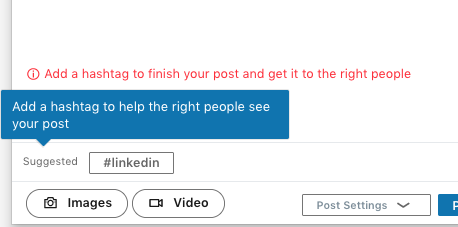LinkedIn’s #compulsory hashtags are a step #backwards
As LinkedIn begins trialling compulsory hashtags as part of its Project Agora, Jon O’Loughlin argues the move is a complete UX minefield.
In an attempt to increase daily usage of their platform, LinkedIn is trialling the use of hashtags as a way to build engagement. Quite apart from sending curious LinkedIn users to Twitter, it also appears to have been counter-productive by angering a heap of users who are now faced with being prevented from posting unless they #something, #anything.

LinkedIn state that: “Adding hashtags helps surface your article to members who may find it relevant. Hashtags act as keywords that help people know what kind of article you’ve written.”
As part of their ‘Project Agora’, named after the public meeting spaces in ancient Greece, LinkedIn want to convince users that the site is a place to hone professional skills, find mentors and share knowledge to solve business problems. We would question whether adding hashtags is either necessary or will enhance the experience to deliver these goals.


Another step to allowing us all to shut down our accounts so we don’t have to be bombarded with countless “opinions” on the death of TV or the death of retail not to mention the connection requests from completely useless-to-me professionals in other fields
#getfuckedlinkedin
Lets nominate a hashtag and keep using it
#splurgeofshite ? #corporatetossbags ? #blahblahblah #mememe #drivelwaffle ?